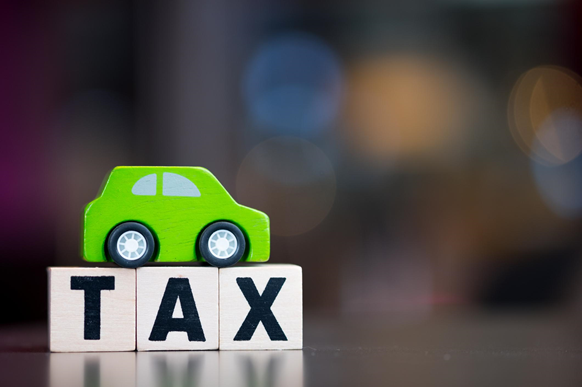
Whether you buy or lease a car, there are lots of things that you need to think about. You need to put fuel in when needed, take out car insurance so that you’re covered should an accident occur and it’s wise to get breakdown cover too. You will also need to tax your vehicle before driving it.
What is road tax, or vehicle excise duty?
Vehicle Excise Duty (VED) is a type of tax that must be paid by you, the vehicle owner, so that you can drive or park your car on public roads. It is also known as road tax, despite this being abolished in the 1930s, or car tax. In 2015, it was announced by then chancellor George Osbourne that all VED funds will go towards the upkeep of UK roads. Previously, the money could also have been spent on other things if required. Now, you can be assured that the money you pay for VED each month or year will go towards improving and building roads across the country.
The amount of VED that you need to pay is dependent on the age and model of your car. This is because the VED system was introduced as a way to reduce the amount of pollution going into the atmosphere from older and less efficient cars. Vehicles that create more pollution than others cost more to tax. This serves as a way of discouraging drivers from continuing to use these vehicles. People who own newer, cleaner models pay less VED. This is why cars with larger engines are in a higher tax bracket too – they use more fuel and therefore produce more emissions than cars with smaller engines.
Paying VED is a legal requirement. If you don’t pay it and are stopped by the police, you could be fined up to £1,000.
Who is responsible for paying vehicle excise duty?
Now you know what VED is, who is actually responsible for paying it?
The registered keeper of the vehicle is the one responsible for taxing it, however, this doesn’t necessarily mean that they have to pay it directly – someone else within the same household could do this, for instance – but the fault lies with the registered keeper if the vehicle is not taxed. The owner should therefore make sure that the vehicle is taxed, even if they aren’t the one to pay for it.
If the car is out of use, it is the registered owner’s responsibility to ensure that it has a Statutory Off-Road Notification (SORN) registered with the DVLA.
Who taxes a leased car?
People often get confused about who pays for the tax on a leased car – technically these vehicles don’t belong to the person leasing but to the finance company. This is why for most leases, the tax will be covered within your monthly rental so you don’t need to worry about it. However, you should always check this when you lease a car, just to make sure the vehicle is taxed.
If you’re unsure about whether your leased car has VED, you can check this on the government website for peace of mind. To do this, all you need is the vehicle’s registration number and the make/model of the car. If you can’t find your vehicle or it isn’t taxed, contact the finance provider to discuss the issue.
Does car leasing include tax and insurance?
As explained above, you don’t typically need to worry about taxing the vehicle, as this will often be included in your monthly rental. Insurance, however, is usually down to you.
Most standard leases don’t come with insurance, however you can ask that it be included in the price. It’s worth considering that this isn’t always the cheapest option and you may be better shopping around to find car insurance that’s suitable for you and at a good price. It is, however, important to note that car insurance provided through a finance company will stay the same throughout the duration of your car lease. So, although it may be more expensive at first, you know that your premiums won’t increase every year. You won’t need to worry about renewing your insurance as, at the end of your lease, you can simply switch your car for another one and take out insurance again in the same way.
Whether you organise your own insurance or purchase it through the financing company, make sure you do have it before driving your vehicle.
